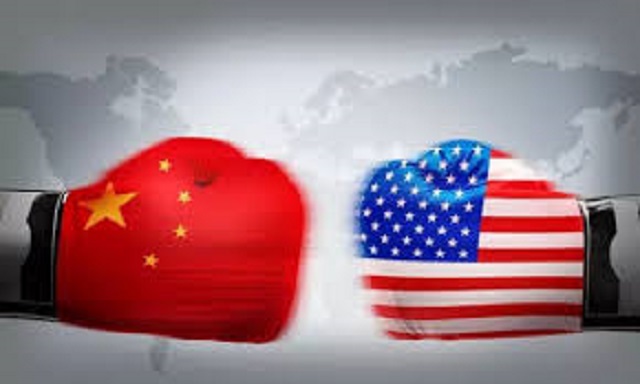The move follows the similar blacklisting of Chinese telecommunications giant Huawei Technologies Co. last month, blocking it from buying U.S. software and components that it needs to make its products.
In a statement on Friday, the Commerce Department said the entities were part of China’s efforts to develop supercomputers. It said they raised national security concerns because the computers were being developed for military uses or in cooperation with the Chinese military.
The Chinese embassy in Washington didn’t immediately respond to a request for comment.
“While Huawei gets attention, the most important sector for U.S.-China economic competition is semiconductors,” Derek Scissors, a China expert at the American Enterprise Institute, who informally advises the Trump administration.
“Coming a week before the president meets Xi Jinping, it’s a welcome sign the U.S. won’t trade advanced technology for Chinese commodities purchases.”
Among those added to the blacklist were AMD’s Chinese joint-venture partner Higon, Commerce said in the statement. Also included were Sugon, which Commerce identified as Higon’s majority owner, along with Chengdu
Haiguang Integrated Circuit and Chengdu Haiguang Microelectronics Technology, both of which the department said Higon had an ownership interest in.
The fifth entity is the Wuxi Jiangnan Institute of Computing Technology, which Commerce said was owned by the People’s Liberation Army’s 56th Research Institute. That institute’s mission, according to Commerce, is “to support China’s military modernization.”
The blacklisting requires American companies doing business with the Chinese firms to get a license from the U.S. government in order to sell their products. The policy for granting such licenses is that there’s a presumption of denial of such a request, according to the statement. The action could heighten tensions just as Trump is preparing for a high-stakes meeting with his Xi during the Group of 20 meetings in Japan from June 28-29.
The U.S. said the companies are “involved in activities determined to be contrary to the national security and foreign policy interests of the United States.” The notice will be published in the federal register on Monday, making it an official directive.
NAN






